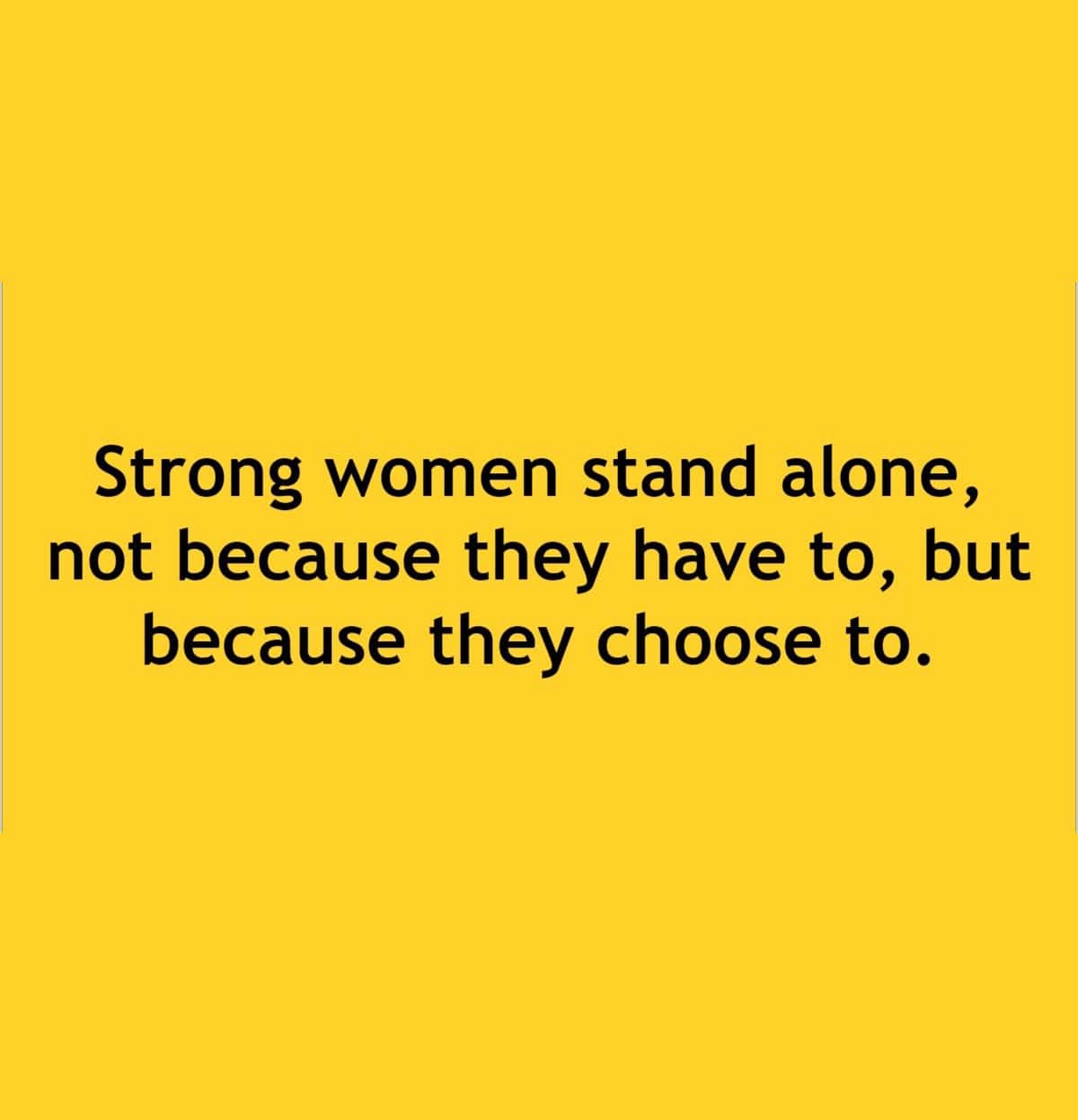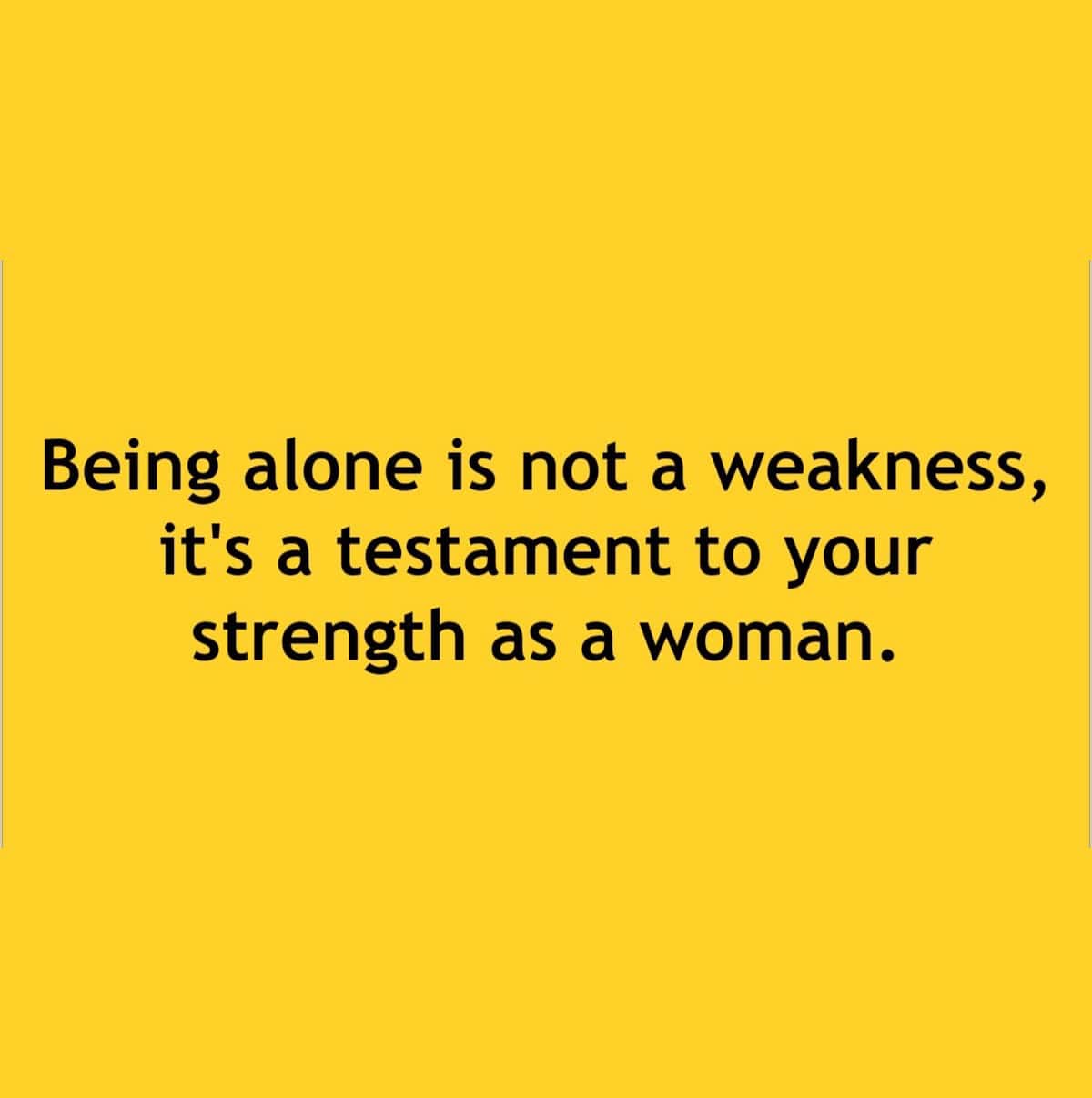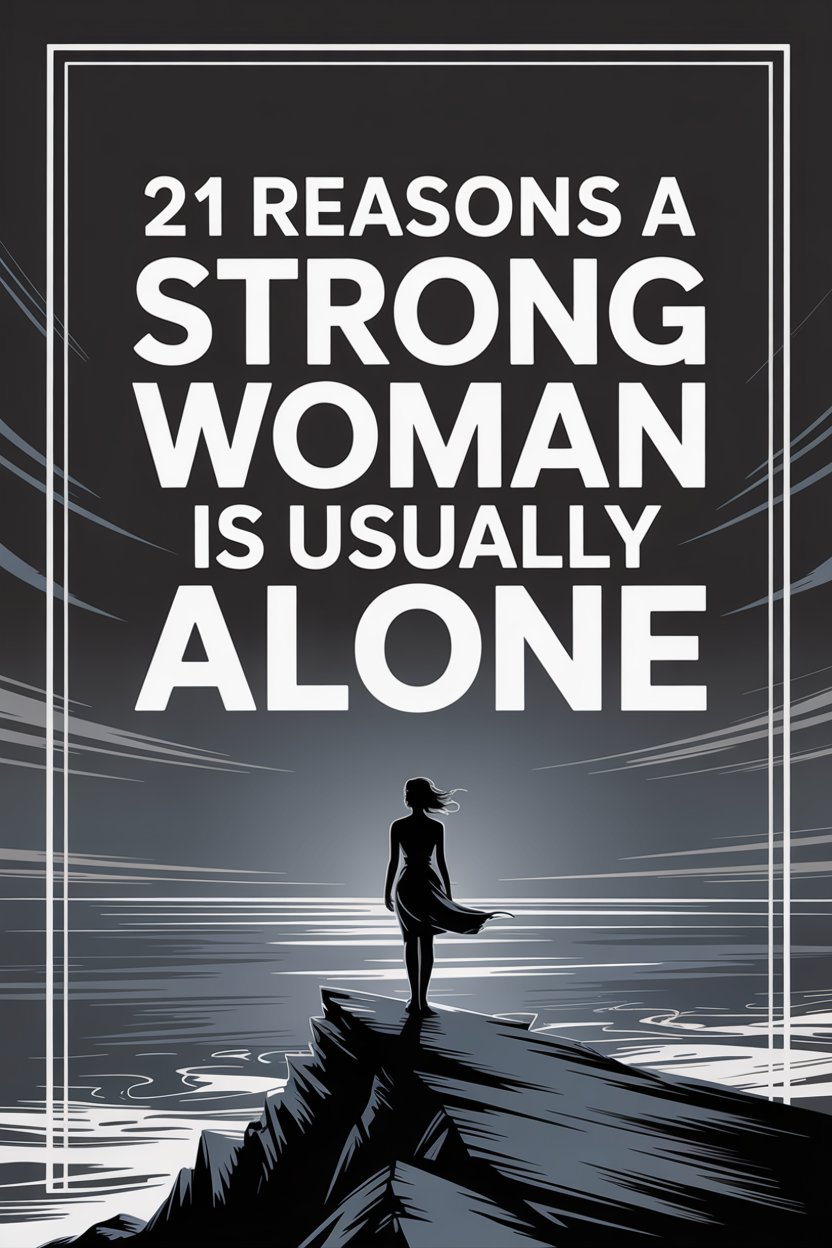21 Reasons a Strong Woman is Usually Alone

Strength in modern women goes beyond physical ability. Inner strength often defines strong women, encompassing emotional resilience, independence, and self-confidence.
They prioritize personal growth and face challenges head-on. For example, they might leave a toxic relationship or pursue a career against societal norms.
Authority figures like psychologists and sociologists have observed a rising trend where strong women balance multiple roles successfully, often excelling in male-dominated fields.
The Misconceptions of Strength and Femininity
Misconceptions about strong women often equate strength with a lack of femininity. People might think strong women are unapproachable or harsh. In reality, strength and femininity coexist.
Strong women can be nurturing, compassionate, and loving. For instance, they might be leaders at work while being caring partners and parents at home.
Studies have shown that these women face societal pressures to downplay their strength to appear more traditionally feminine, but they stand firm in their identity, combining both attributes smoothly.
Independence and Self-Sufficiency
1. Embracing Solitude for Personal Growth
Strong women recognize that solitude fosters personal growth. By spending time alone, you reflect on your experiences and goals, leading to greater self-awareness.
This self-reflection enhances emotional resilience and decision-making skills. Without the distractions of constant companionship, you pursue interests and hobbies that enrich your life.
2. How Independence Can Intimidate Others
Independence often intimidates others. When you exhibit strong self-sufficiency, some may feel insecure. Your ability to thrive alone challenges traditional relationship dynamics.
This confidence can deter potential partners who feel inadequate. Though not your intention, their discomfort stems from a comparison to your independence.
3. Prioritizing Personal Goals
Strong women prioritize their personal goals over societal expectations. Your career, education, or passions take center stage.
This focus on self-fulfillment leaves little room for relationships that don’t align with your aspirations. By staying true to your values, you build a life centered on your growth and happiness.
4. Uncompromising Standards
With a clear sense of self, you maintain uncompromising standards. You seek relationships that enhance, not hinder, your life.
This discerning nature often results in fewer, but more meaningful, connections. While it may reduce the quantity of relationships, it improves their quality.
5. Mastering Self-Care
You’re skilled in self-care, understanding its importance. This includes physical, mental, and emotional well-being. By prioritizing self-care, you ensure that you’re at your best before entering a relationship.
This focus on self-maintenance sets you apart and shifts your relationship timeline, often leading to periods of independence.
6. Seeking Equal Partnerships
You value equal partnerships. Your strength demands a partner who respects and matches your independence. Many find this expectation daunting, leading to a smaller pool of suitable partners. Yet, those who meet this criterion contribute to profound and balanced relationships.
7. Confidence in Solitude
Confidence in solitude distinguishes you. You’re comfortable alone, finding fulfillment in your independence.
This self-reliance reduces the need for companionship out of loneliness. As a result, you attract partners based on mutual respect and admiration, not necessity.
8. Avoiding Toxic Relationships
Strong women recognize and avoid toxic relationships. Your independence empowers you to leave harmful situations swiftly.
This proactive approach to relationships ensures your well-being and fosters a selective attitude towards future connections. The willingness to walk away from negativity is a hallmark of your strength.
9. Empowering Decision-Making
Your independence empowers decision-making. Free from external influence, you choose what’s best for you.
This autonomy may appear intimidating to some but signals strong self-assurance. Your ability to make choices confidently serves as a foundation for all interactions.
High Standards and Expectations
10. The Pursuit of a Compatible Partner
Strong women often find themselves alone because they seek partners who match their ambition and values.
When you look for compatibility, you’re less likely to compromise on essential traits like mutual respect, shared goals, and emotional intelligence. This makes finding the right partner more challenging but ensures healthier and more fulfilling relationships.
11. Refusal to Settle for Less
Refusal to settle for anything less than what meets your expectations keeps you from entering unfulfilling relationships. You value your self-worth, so you’re unlikely to tolerate partners who don’t meet your standards or add value to your life.
This high self-regard leads to fewer but more meaningful connections, reinforcing your independence and self-assurance.
Emotional Intelligence and Maturity
12. Awareness of Emotional Needs
Strong women possess high emotional intelligence, making them keenly aware of their emotional needs. They understand what makes them happy, calm, and fulfilled.
For example, they might recognize the need for alone time to recharge or seek deep conversations for mental stimulation.
This self-awareness simplifies setting clear boundaries, providing themselves with what they need to thrive emotionally. Due to this, they often avoid relationships that don’t support their emotional well-being.
13. Challenges in Finding Emotional Equals
Due to their heightened emotional maturity, strong women often struggle to find partners who match their level. They seek relationships where both individuals are emotionally intelligent, able to communicate feelings effectively, and understand each other’s emotional landscape.
For example, while they might seek someone who can discuss complex emotions and work through conflicts maturely, potential partners often lack these skills, leading to fewer compatible matches.
The challenge lies in finding someone who can truly connect on that level, making the journey to find an emotional equal a daunting one. This often leaves strong women alone, but unwilling to settle for anything less than an emotionally mature partner.
Prioritization of Career and Goals
14. Balancing Career Ambitions with Personal Life
Strong women often prioritize their career ambitions and personal goals. They focus on professional growth and achievements, dedicating time and energy that might otherwise go to relationships.
Balancing work and personal life becomes challenging when high standards and goals drive you. These priorities can lead to solitude as expectations don’t align easily with potential partners’ willingness to support such ambitions.
15. Societal Views on Successful Women
Social perceptions influence how success is viewed in women. Ambitious women may be seen as intimidating, leading to fewer relationship opportunities.
Society frequently expects women to prioritize family over career, so when you defy this norm, people can misinterpret your choices. Navigating these societal views requires resilience, and in many cases, this journey is walked alone.
Fear of Vulnerability
16. Protecting Emotional Well-being
Strong women often avoid vulnerability to protect their emotional well-being. They’ve endured past experiences where trust got betrayed or emotions got taken advantage of. These experiences shape their cautious nature, leading them to shield their hearts from potential harm.
For example, a strong woman may avoid opening up in new relationships, fearing emotional hurt. This protective mechanism prevents them from forming deep connections. They prioritize emotional safety over vulnerability, maintaining control over their emotional state.
17. Misinterpretation of Emotional Barriers
People often misinterpret strong women’s emotional barriers. To outsiders, these barriers can seem like aloofness or lack of interest, but that’s rarely the case. Strong women use these barriers as a defense against emotional pain they’ve experienced before.
Imagine situations where a strong woman sets firm boundaries, appearing distant or unapproachable. Others might misconstrue this as arrogance or disinterest, not realizing it’s a protective measure. Understanding this nuanced behavior requires empathy and patience.
By recognizing that these women value emotional security, it’s clear why they appear guarded. Deep connections and trust form over time, but initially, these women might seem emotionally distant as a self-protection method.
The Role of Past Experiences
18. Learning from Previous Relationships
Strong women take past relationships seriously to avoid repeating mistakes. They’ve likely encountered partners who didn’t appreciate their strengths or attempted to overshadow their independence. These experiences shape their approach to new relationships.
They value what they learned, understanding that settling for less isn’t an option. For example, having dealt with controlling or unsupportive partners in the past, they now seek relationships where mutual respect and admiration prevail.
This selective nature often results in solitude as they wait for someone who genuinely aligns with their values.
19. Impact of Past Traumas on Trust
Past traumas significantly influence a strong woman’s trust levels. Experiences of betrayal or emotional manipulation create emotional scars, making trust a precious commodity. These women develop defenses like setting strict boundaries to prevent further hurt.
For instance, if they’ve faced infidelity or emotional neglect, they’re more guarded and cautious in letting someone new into their lives. This protective stance, often misinterpreted as aloofness, ensures they maintain emotional well-being.
Consequently, their high standards and protective measures often leave them alone, as they navigate relationships with heightened scrutiny and care.
Time Management Challenges
20. Allocating Time Between Personal Life and Ambitions
Your ambitious nature often demands significant time commitments. Balancing personal life with these commitments becomes a daunting task.
Strong women typically pursue careers, hobbies, and constant self-improvement, leaving little room for relationship-building activities.
For example, you may find yourself working late nights to meet a deadline or attending professional network events on weekends, which can strain personal relationships.
21. The Struggle with Giving Relationships Adequate Time
Relationships require nurturing and time investment. As a strong woman, you likely prioritize your goals, making it hard to find time for a partner. Even when you do initiate a relationship, the time constraints might lead to perceived neglect.
This often results in partners feeling undervalued. You may find yourself canceling dates for work commitments or missing important personal moments due to professional obligations, further complicating your romantic prospects.
Final Thoughts
A strong woman’s journey is often marked by independence and resilience. While this can lead to periods of solitude, it’s a testament to her strength and self-worth. Embracing solitude allows her to grow, set boundaries, and seek meaningful connections.
Though finding an emotionally mature partner can be challenging, her unwavering commitment to personal growth and self-improvement ultimately paves the way for deeper, more fulfilling relationships.
Remember, being alone doesn’t mean being lonely; it means valuing yourself enough to wait for the right connections.







